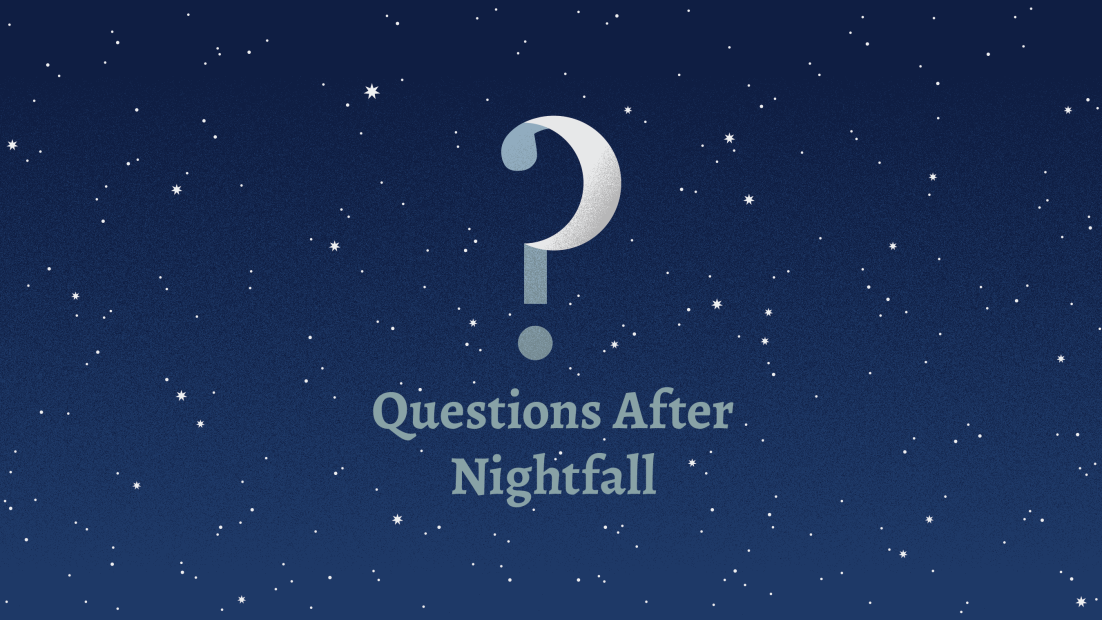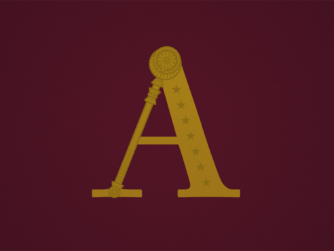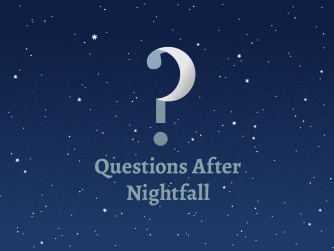Alan and Shawn once again welcome listeners to the common room for our latest Q&A episode! This time we answer questions about themes in Tolkien’s legendarium, talk about favorite niches in Tolkien fandom, and even discuss what keeps characters going when hope fails. Also, why did it take so long for the king to return to Gondor? Why do some characters get better results out of the palantíri than others? And why are the Elves of the First Age always getting lost? All this, plus an exciting what-if about Faramir going to Rivendell instead of his brother.
Recommended Reading:
Tolkien, J. R. R. The Hobbit (Mariner Books, paperback)
Tolkien, J. R. R. (Christopher Tolkien, ed.) The Silmarillion (Mariner Books, paperback)
Carpenter, Humphrey, ed. The Letters of J.R.R. Tolkien (Mariner Books, paperback)





15:25 Why do Elves get lost? Can’t they navigate by the stars? Couldn’t they invent the compass?
These questions scream for the answer: YOU CAN’T ALWAYS SEE THE STARS. Or the Sun. Both do the job of the compass. But sometimes it’s cloudy.
Getting lost geographically is a metaphor for getting lost morally. Metaphor is close to allegory, but we don’t do that, oh no no no. In AOTC Shippey points to the influence of Milton’s Comus, which has the theme of getting lost in a forest. Which recurs.
“northern courage” was mentioned a few times. It’s a bit problematic, don’t you agree, as it implies southern folk don’t have equivalent courage?
“Northern courage” refers to the ‘northern theory of courage’; the “creed of unyielding will … absolute resistance, perfect because without hope” which Tolkien identified in ‘Beowulf’. I like, as he did, to imagine Byrhtnoth’s warriors having this theory at the battle of Maldon (a place I know in its tranquil modern guise). And perhaps, present-day examples might be thought of.
All the same, it’s a feature of Norse and Anglo-Saxon literature, not a racial characteristic. All people are brave, all people defend their homes. The Tolkienian synonym for Haradrim, “Southrons”, was a name the Confederate side wore proudly in the US Civil War, again in a hopeless cause. Which maybe isn’t the greatest of examples.
With regard to Arthur’s question, one thought that occurred to me is that if Faramir, rather than Boromir, had travelled to Rivendell and accompanied Aragorn, when and if Aragorn reached Minas Tirith, he would likely have received a hostile reception, both from Boromir (who would never have met Aragorn at that point) and from Denethor (who might have recognized him as Thorongil). If Faramir were present, he would undoubtedly have vouched for Aragorn, but it seems unlikely that his father and brother would have listened to him.